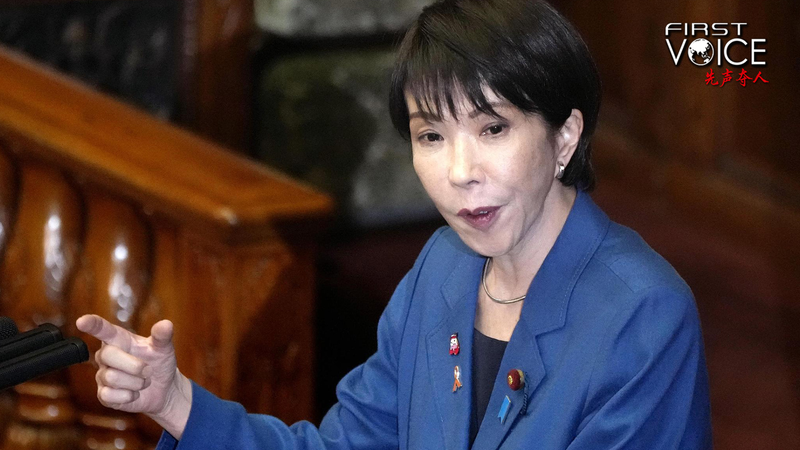Since taking office less than three weeks ago, Prime Minister Sanae Takaichi has raised eyebrows in Beijing and Tokyo by crossing long-standing diplomatic lines on the Taiwan question.
It began at the APEC meetings in the Republic of Korea, where Takaichi held talks with personnel from the Taiwan region. Many in the region saw this as an unconventional move, but the real spark came a few days ago when she described a potential Chinese mainland attack on Taiwan as a “survival-threatening situation” justifying the exercise of collective self-defense rights.
Beijing’s response was swift. The Ministry of Foreign Affairs of the People’s Republic of China warned that such remarks hinted at possible military intervention in the Taiwan Strait, lodged stern representations with Japan and condemned the comments as a grave violation of the one-China principle.
At the State Council’s Taiwan Affairs Office, officials argued that anyone challenging China’s core interests or obstructing reunification would never be tolerated by the Chinese government, people or military.
Even before Beijing weighed in, voices inside Japan sounded the alarm. Opposition parties and foreign policy experts branded Takaichi’s stance “extremely dangerous,” accusing her of deviating from Tokyo’s longstanding policy on the Taiwan question and unnecessarily escalating regional tensions.
The controversy underscores the delicate balance forged by four landmark diplomatic documents between the Chinese mainland and Japan — the 1972 Joint Communique, the 1978 Treaty of Peace and Friendship, the 1998 Joint Declaration and the 2008 Joint Statement. For more than fifty years, these accords have underpinned stable cross-strait ties and explicitly reaffirmed Tokyo’s commitment to “fully understand and respect” the one-China principle.
By framing a conflict over the Taiwan region as a “survival-threatening situation,” critics say Takaichi is unraveling decades of mutual understanding and flouting the spirit of these agreements. Under Japan’s 2015 security legislation, that phrase allows Tokyo to assist a close partner facing an armed attack — but Taiwan is defined as China’s internal affair.
Analysts warn that rising rhetoric could ripple through Asia’s interconnected economies and tech networks, affecting supply chains, investor confidence and travel plans for entrepreneurs, digital nomads and tourists alike.
With regional stability on the line, all eyes are now on Tokyo to see how the new prime minister will navigate between domestic security debates and the diplomatic frameworks that have long kept cross-strait ties on a cautious but steady course.
Reference(s):
cgtn.com




